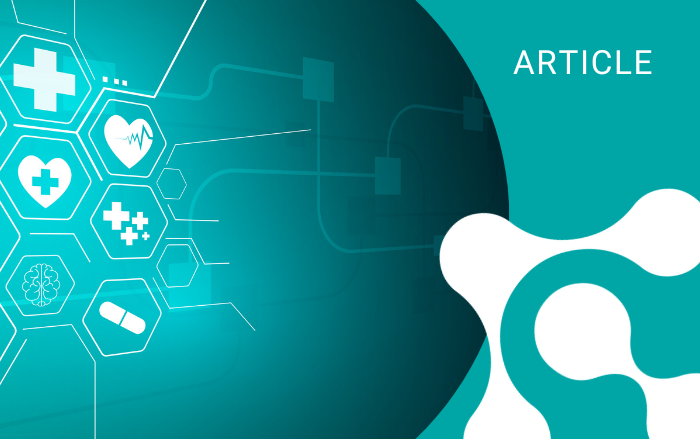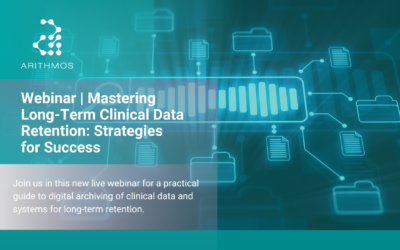Cloud migration plays an important role in the Healthcare and Life Sciences industries: it provides a secure foundation upon which these organisations can build their critical operations and processes; not just for today but into the future as well.
Cloud technology has made massive strides in the past few years, and regulated organisations are not only trusting the technology more but seeing it as a competitive advantage.
Cloud enables the best use of data, improves collaboration across the ecosystem, stimulates patient and healthcare professional engagement, and transforms the culture to embrace these new ways of working.
Cloud migration is a game-changer for Life Sciences companies, enabling faster drug discovery, improved patient care, and reduced costs.
What are the advantages of the cloud?
There are a multitude of benefits of cloud migration, including:
Scalability and Flexibility
Cloud migration enables Life Sciences companies to scale up or down their IT infrastructure based on their business needs, allowing them to accommodate the changing demands of their operations.
Cost Savings
Cloud migration eliminates the need for on-premises infrastructure, reducing hardware and maintenance costs while also providing cost optimisation tools to ensure that companies only pay for what they use.
Improved Data Management
Cloud migration centralises data management, making it easier to access and share data across departments and locations. This facilitates collaboration and streamlines processes, leading to faster drug discovery and clinical trials.
Enhanced Security and Compliance
Cloud providers offer robust security measures and comply with industry regulations, such as HIPAA and GDPR, reducing the risk of data breaches and non-compliance penalties.
Increased Agility
Cloud migration enables Life Sciences companies to deploy new applications and services quickly and efficiently, enabling faster innovation and market responsiveness.
Overall, cloud migration transforms the way Life Sciences companies operate, offering significant benefits in terms of scalability, cost savings, data management, security, compliance, and agility.
What are the main challenges of the cloud?
Cloud migration also poses several challenges and pain points for Life Sciences companies.
Some of the common challenges with a cloud migration include:
Compliance and Security
Life Sciences companies handle important and often sensitive data, and regulatory requirements such as HIPAA and GDPR impose strict rules on the storage, processing, and transfer of such data.
Companies need to ensure that their cloud provider or software vendor (SaaS) complies with these regulations and provides adequate security measures to protect their data from unauthorised access, breaches, and cyberattacks.
Data Migration
Life Sciences companies have a vast amount of data stored in legacy systems, databases, and applications that need to be migrated to the cloud.
Data migration can be a challenging process that must ensure data integrity and security, optimise performance and minimise downtime during the transition.
Scalability and Performance
Life Sciences companies need to process large amounts of data in real-time to support drug discovery, clinical trials, and patient care.
Ensuring that the infrastructure can handle the expected workload efficiently requires careful planning and monitoring.
Cost Management
Cloud implementation and maintenance can be expensive, especially when it comes to data storage, processing, and bandwidth.
Life Sciences companies need to optimise their cloud spending and avoid unexpected costs.
Cultural Change
Cloud migration requires a cultural change in the organisation, as it involves a new way of working, collaborating, and managing data.
Life Sciences companies need to ensure that their employees are trained and equipped to work in a cloud environment.
By ensuring compliance and security, optimising data integration, scaling and performance, managing costs, and promoting cultural change, Life Sciences companies can overcome the pain points of cloud migration and unlock the full potential of the cloud for their business.
Let’s Get Cloud Migration Started! What are the Solutions?
The cloud migration process has many moving parts, and it’s important to plan ahead.
The first step is to determine your data migration strategy.
What kind of data do you need to move? How much of it?
Do you want to move all of your data or just some of it?
Once those questions are answered, the next step is security and compliance.
How will your new cloud provider handle security measures like encryption, access control lists (ACLs) and identity federation?
You also need to consider whether they have certifications such as ISO 27001/27002 certification or HIPAA certification and if so, what level they’re certified at (a lower level may not be sufficient).
Finally comes testing: before making any changes in production environments, test them out on non-production environments first!
This will help ensure everything works as expected when deployed live later down the line.
There are three main options to migrate your Life Sciences data to the cloud:
Private cloud
A private cloud is a dedicated server or group of servers that are managed by an organization. The company owns and operates the hardware, software and networking resources for its own use.
Public cloud
A public cloud is shared among many customers and allows users to rent virtual machines (VMs) or storage space on demand. Cloud service providers (e.g Microsoft Azure, Amazon AWS and Google Cloud Platform) offer this type of service through an API-based interface that allows customers access over the internet without having direct access to their physical servers and networks.
Hybrid Cloud
A hybrid solution uses both private and public clouds in order to get maximum flexibility while minimising security risks associated with using only one type of infrastructure model at any given time during migration processes across multiple applications/services running within different departments within an enterprise ecosystem.
All major software players have developed their solutions to integrate with major cloud providers and provide advanced services. They provide a new approach cloud-oriented with PaaS and SaaS offers.
PaaS (Platform as a Service) provides a platform and a set of tools to build, deploy and manage applications without worrying about the underlying infrastructure.
SaaS (Software as a Service) provides a complete software application that is accessed through a web browser. The vendor hosts and maintains the software.
Arithmos’ Approach
To support the innovation for Life Sciences and Healthcare organisations, Arithmos proposes ARinCLOUD, a unique blend of services and deep knowledge of the Life Sciences domain that helps companies:
- embrace the cloud.
- Overcome cloud compliance concerns.
- Scale existing infrastructures.
- Modernise legacy applications.
- Boost the value of their data.
Overcoming internal and external silos with improved infrastructure, data flow and interoperability between players. When the business needs to change and grow, the flexibility of cloud technology allows companies to scale quickly.
With our experience in the Life Sciences sector, we provide vertically integrated Cloud services to solve industry-specific needs. Our ecosystem of extended partners allows us to be “tech flexible” while avoiding vendor lock-in.
All our services are properly documented, and our partners are audited to ensure regulatory compliance.
Our talent has vast, deep industry, technology, and functional experience.
Our process flexibility allows us to define the best-tailored approach from SME to Big Companies.
Arithmos ensures success through every step of your migration journey.
Would you like to start your cloud migration?
About Arithmos
We are Business and Technology experts in the Life Sciences industry.
We are a long-standing Partner and Service Provider across Clinical Development, Regulatory and Compliance, Quality Management, Pharmacovigilance, and Medical Affairs domains.
We help pharmaceutical, biotechnology, nutraceutical, medical device, universities, hospitals and non-profit organisations to gain the best business value through technology-enabled solutions and achieve excellence in business operations.




